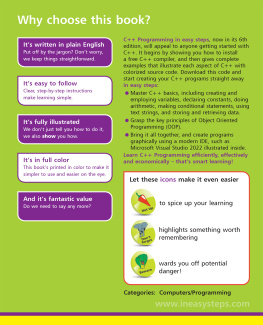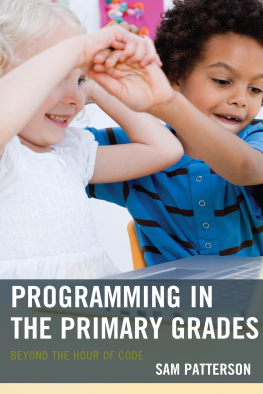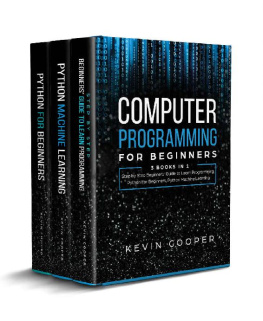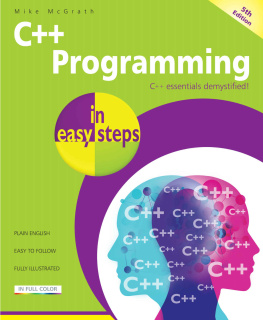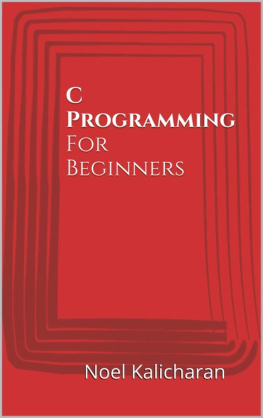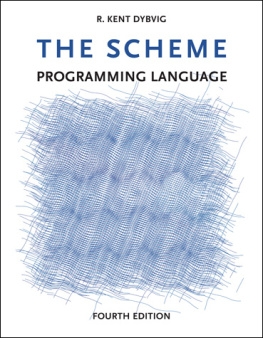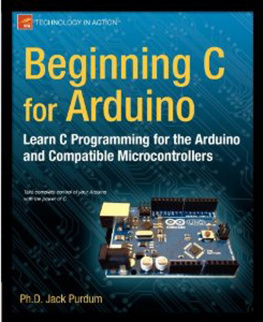Studying Programming
Visit our free study skills resource at www.skills4study.com
Palgrave Study Guides |
Authoring a PhD Career Skills Critical Thinking Skills e-Learning Skills Effective Communication for Arts and Humanities Students Effective Communication for Science and Technology The Foundations of Research The Good Supervisor How to Manage your Arts, Humanities and Social Science Degree How to Manage your Distance and Open Learning Course How to Manage your Postgraduate Course How to Manage your Science and Technology Degree How to Study Foreign Languages How to Write Better Essays IT Skills for Successful Study Making Sense of Statistics The Mature Students Guide to Writing The Postgraduate Research Handbook | Presentation Skills for Students The Principles of Writing in Psychology Professional Writing Research Using IT Skills for Success The Student Life Handbook The Palgrave Student Planner The Students Guide to Writing (2nd edn) The Study Skills Handbook (2nd edn) Study Skills for Speakers of English as a Second Language Studying the Built Environment Studying Economics Studying History (2nd edn) Studying Mathematics and its Applications Studying Modern Drama (2nd edn) Studying Physics Studying Programming Studying Psychology Teaching Study Skills and Supporting Learning Work Placements A Survival Guide for Students Write it Right Writing for Engineers (3rd edn) |
Palgrave Study Guides: Literature General Editors: John Peck and Martin Coyle |
How to Begin Studying English Literature (3rd edn) How to Study a Jane Austen Novel (2nd edn) How to Study a Charles Dickens Novel How to Study Chaucer (2nd edn) How to Study an E. M. Forster Novel How to Study James Joyce How to Study Linguistics (2nd edn) | How to Study Modern Poetry How to Study a Novel (2nd edn) How to Study a Poet (2nd edn) How to Study a Renaissance Play How to Study Romantic Poetry (2nd edn) How to Study a Shakespeare Play (2nd edn) How to Study Television Practical Criticism |
Studying Programming
Sally Fincher and the Computing Education Research Group


Sally Fincher and the Computing Education Research Group 2006
All rights reserved. No reproduction, copy or transmission of this
publication may be made without written permission.
No paragraph of this publication may be reproduced, copied or transmitted
save with written permission or in accordance with the provisions of the
Copyright, Designs and Patents Act 1988, or under the terms of any licence
permitting limited copying issued by the Copyright Licensing Agency,
90 Tottenham Court Road, London W1T 4LP.
Any person who does any unauthorised act in relation to this publication
may be liable to criminal prosecution and civil claims for damages.
The authors have asserted their rights to be identified as the authors of this
work in accordance with the Copyright, Designs and Patents Act 1988.
First published 2006 by
PALGRAVE MACMILLAN
Houndmills, Basingstoke, Hampshire RG21 6XS and
175 Fifth Avenue, New York, N.Y. 10010
Companies and representatives throughout the world
PALGRAVE MACMILLAN is the global academic imprint of the Palgrave
Macmillan division of St. Martins Press, LLC and of Palgrave Macmillan Ltd.
Macmillan is a registered trademark in the United States, United Kingdom
and other countries. Palgrave is a registered trademark in the European
Union and other countries.
ISBN-13: 9781403946874
ISBN-10: 1403946876
This book is printed on paper suitable for recycling and made from fully
managed and sustained forest sources.
A catalogue record for this book is available from the British Library.
10 9 8 7 6 5 4 3 2 1
15 14 13 12 11 10 09 08 07 06
Printed and bound in China
Contents
List of Figures
List of Tables
About the Authors
Studying Programming has been written by the following nine members of the Computing Education Research Group from the Computing Laboratory at the University of Kent. It is a work of equal authorship.
David Barnes is a lecturer at the University of Kent and has been teaching programming for nearly 25 years. He has a broad experience of different languages and programming styles and is an author of two textbooks on object-orientation.
Janet Carter teaches Mathematics, Formal Reasoning and Network Analysis to Computer Science students. Before this she taught mathematics and IT at a secondary school. Her research interests include the initial learning of programming and she runs the annual HE Academy ICS one-day conference on the teaching of programming.
Sally Fincher is a senior lecturer in the Computing Laboratory at the University of Kent where she leads the Computing Education Research Group (and gets them to write books). She is editor of the journal Computer Science Education (jointly with Renee McCauley).
Aliy Fowler is a lecturer in Computer Science at the University of Kent. She has taught many different programming courses a large proportion of which have been to novice programmers. Before becoming a computer scientist she trained as a translator and before that studied art and design.
Ursula Fuller is Dean of Science, Technology and Medical Studies at the University of Kent. She teaches modules on information systems to students at all levels from the first year to postgraduates. Before she became Dean she taught introductory programming to students who were not computing specialists.
Matthew Jadud is a PhD student at the University of Kent. He studies how students learn to program, and in his spare time writes compilers for old, little languages and plays with LEGO robots.
Colin Johnson is a senior lecturer in Computer Science at the University of Kent. He has teaching experience in many different areas in computer science and mathematics. In recent years his teaching has particularly focused on programming and software engineering. He is also actively involved in research, with particular interests in the application of computing to understanding biological and medical problems.
Bob Keim has been in classrooms most of his life. He currently lectures in computing at the University of Kent-Medway. Elsewhere, his students have included American pre-schoolers and graduate students, Japanese elementary pupils and university students, and Croatian businessmen. He holds postgraduate degrees in philosophy, TEFL and Computer Science.
Janet Linington has worked with computers and in education for many years. Currently a lecturer in the Computing Laboratory at the University of Kent, she has also worked as a teacher of maths and of computing in secondary schools and for the Computing Service at the University of Cambridge.
Part One
Getting Started
Next page

